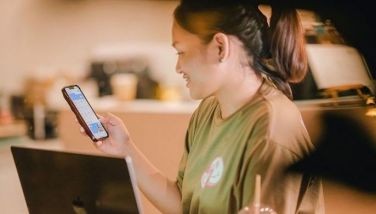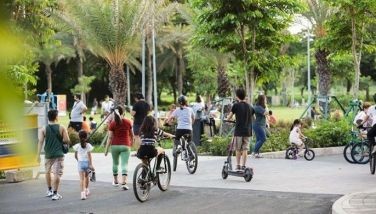A rape victim’s story
April 27, 2003 | 12:00am
Lucky
Alice Sebold
Back Bay Books
246 pages
Available at Goodwill Bookstore
The issue of rape is a very delicate matter, most especially the victims are concerned. The sense of violation of a rape is almost incomprehensible to one who has never been in its claws, so people finding themselves in its peripherals often prefer, or better yet, default to a stance of detachment, dealing instead with plain facts, unintentionally lending the victim the typical hazy gloss of story, if not, statistic. A neglected reality, of course, is that rape and its effects are not isolated to, say for example, a lacerated organ, or an unwanted pregnancy, or a conviction to seek elusive justice even. What non-victims know of rape fail to highlight the more important after-effects: Footsteps haunt a victim almost all her life.
There are echoes that stay after a rape, and they ripple across a victim’s life from past, present, to future. This is what Alice Sebold bravely and meticulously document in her searing and enlightening account of her own rape when she was 18 and a college freshman. In an often conversational tone that is a delicate blend of wit, cynicism and humor, Sebold’s writing becomes the voice of a long-time friend candidly tracing her life, with her rape as vantage point, from when the crime was committed down to when she emerged victorious over its after-effects.
She communicates the transformation she underwent with extreme sensitivity. Describing a moment when, a few days before the rape, a good friend had watched her sleep in a classroom while a party went full blast in her dorm, she writes, "I look back and see Casey as a guard dog. I want to say that under his guard I felt safe, but the person writing this is not the person who curled up on the carpeted platforms inside dark classrooms. The world was not divided for me then as it is now. Ten days later, on the last night of school, I would enter what I’ve thought of since as my real neighborhood, a land of subdivision where tracts are marked off and named. There are two styles available: the safe and the not safe."
Sebold also boldly captures the nuances of her experience as a victim/survivor, conferring a valuable sense of humanity on a crime that is often dealt with in whispers, as if victims had to bear the brunt of the shame. She talks about returning to school the summer after, giving an almost amusing account of her campus infamy that had everyone claiming to have been her friend: "I stood there and looked at her. I had a memory of borrowing her toothpaste once in the bathroom. How can I describe her look? She was oozing, she was sorry for me and thrilled to be talking to me. She was holding the hand of the girl who had been raped on the last day of school freshman year."
Alternately gruesome, endearing and enlightening, Lucky is a blazing account of survival that gives more light to the real experience of all victims of violence and not just rape. By sharing intimate details of her life growing up that touch on or contribute to her experience, Sebold has also managed to contest the usual perception that a traumatic experience can be compartmentalized, for instance, in before and after boxes.
More importantly, however, readers become part of Sebold’s healing process as they read the book, it being the end-result of the same message her book imparts: "You save yourself or remain unsaved." – Althea Lauren Ricardo
Alice Sebold
Back Bay Books
246 pages
Available at Goodwill Bookstore
The issue of rape is a very delicate matter, most especially the victims are concerned. The sense of violation of a rape is almost incomprehensible to one who has never been in its claws, so people finding themselves in its peripherals often prefer, or better yet, default to a stance of detachment, dealing instead with plain facts, unintentionally lending the victim the typical hazy gloss of story, if not, statistic. A neglected reality, of course, is that rape and its effects are not isolated to, say for example, a lacerated organ, or an unwanted pregnancy, or a conviction to seek elusive justice even. What non-victims know of rape fail to highlight the more important after-effects: Footsteps haunt a victim almost all her life.
There are echoes that stay after a rape, and they ripple across a victim’s life from past, present, to future. This is what Alice Sebold bravely and meticulously document in her searing and enlightening account of her own rape when she was 18 and a college freshman. In an often conversational tone that is a delicate blend of wit, cynicism and humor, Sebold’s writing becomes the voice of a long-time friend candidly tracing her life, with her rape as vantage point, from when the crime was committed down to when she emerged victorious over its after-effects.
She communicates the transformation she underwent with extreme sensitivity. Describing a moment when, a few days before the rape, a good friend had watched her sleep in a classroom while a party went full blast in her dorm, she writes, "I look back and see Casey as a guard dog. I want to say that under his guard I felt safe, but the person writing this is not the person who curled up on the carpeted platforms inside dark classrooms. The world was not divided for me then as it is now. Ten days later, on the last night of school, I would enter what I’ve thought of since as my real neighborhood, a land of subdivision where tracts are marked off and named. There are two styles available: the safe and the not safe."
Sebold also boldly captures the nuances of her experience as a victim/survivor, conferring a valuable sense of humanity on a crime that is often dealt with in whispers, as if victims had to bear the brunt of the shame. She talks about returning to school the summer after, giving an almost amusing account of her campus infamy that had everyone claiming to have been her friend: "I stood there and looked at her. I had a memory of borrowing her toothpaste once in the bathroom. How can I describe her look? She was oozing, she was sorry for me and thrilled to be talking to me. She was holding the hand of the girl who had been raped on the last day of school freshman year."
Alternately gruesome, endearing and enlightening, Lucky is a blazing account of survival that gives more light to the real experience of all victims of violence and not just rape. By sharing intimate details of her life growing up that touch on or contribute to her experience, Sebold has also managed to contest the usual perception that a traumatic experience can be compartmentalized, for instance, in before and after boxes.
More importantly, however, readers become part of Sebold’s healing process as they read the book, it being the end-result of the same message her book imparts: "You save yourself or remain unsaved." – Althea Lauren Ricardo
BrandSpace Articles
<
>















